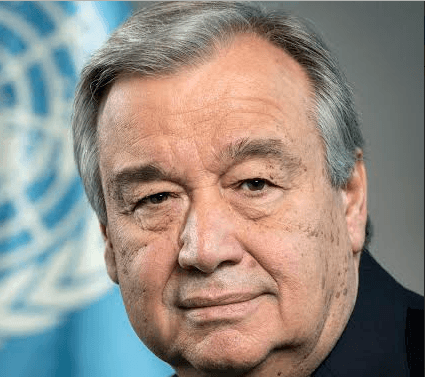Q&A: How this Guelph author's research on World War II led to writing her 2nd novel | CBC News
A Guelph author is launching her second novel. It's about a fictional town named Upton Bay, which is a small town hiding some secrets. Karen Smythe joined CBC K-W's The Morning Edition to talk about her inspiration for the story, as well as her approach to writing.

When aspiring writer Samara moved with her boyfriend J. to the little town of Upton Bay to write a story, she wasn't expecting to discover that behind the town's charming facade is a dark history.
That's the premise of Guelph author Karen Smythe's new book A Town With No Noise.
The novel will have its official launch next month.
Smythe joined CBC K-W's The Morning Edition guest host Josette Lafleur to talk about her inspiration and her writing process.
Audio of this interview can be found at the bottom of this story. This interview has been edited for length and clarity.
Tell us a little bit more about A Town With No Noise and what readers can expect.
Well, the book is about two fictional small towns actually, and it's told in two parts. The first part of the book focuses on Upton Bay, which is… a southern Ontario pretty town that is very attractive to tourists. Part two is actually set back in World War II in Norway. But the link is the narrator, whose name is Sam. She's an aspiring writer. She's on assignment in Upton Bay. She's to write an article about the town.
The novel opens with Sam traveling to Upton Bay with her boyfriend. His name is J. and they stay with J.'s grandfather, who's a German immigrant. And while there, she does uncover some secrets about the town, including its treatment of migrant workers, but also about J.'s family and its past in Nazi Germany.
Then the novel becomes focused on Sam's investigation of her own family's past in occupied Norway. She becomes much more interested in researching and writing about what happened in Norway under the German occupation. So there are lots of surprises in that part of the book also.
So what inspired you to write this book?
Well, I started out writing the book about a town like Upton Bay. There were so many stories that I wanted to tell about the people who lived there and the changes that the town had undergone, from becoming an agricultural area gradually transitioning into kind of a winery destination and a tourism hotspot.
But as I was writing and developing characters, the one character who kind of took over for me in terms of the story line was J.'s grandfather, Otto, who had immigrated just after WW II to Canada. And the stories that I was uncovering as I was thinking about and researching, that aspect of that character kind of turned into more of a wide research into WW II. My narrator, Sam, had a Norwegian family background, so the research took off from there, and that's how the book kind of evolved and became what it is.
What else did you learn during your research? Because you do combine fiction and nonfiction in this novel.
So the novel is kind of a hybrid, especially in part two of fact and fiction. When I was researching about the Norwegian experience under German occupation, I discovered a lot of things that I hadn't known.
I do have a family background based in Norway. My grandparents on my mother's side immigrated to Canada from Norway, and I hadn't heard about any of the things that I discovered about the war, Norway, and what it was like for not only my family and Norwegians in general but also that the Jewish population in Norway. So it was kind of surprising and shocking to me to learn about how the Holocaust took place in Norway, as well as in other countries in Europe during the war.
So Sam almost sounds like you.
She is – and she isn't. She's a young woman and she is aspiring to be a writer, but she's not a fiction writer. She's more of an investigator, and so she's more interested in writing about history and writing about social issues and things like that.
In the book, she changes the course of her future by shifting her career as well. She doesn't become me by any means.
The Norwegian connection as well. It does sound like there's a little bit of inspiration there.
Yeah, although the stories about Norway are completely imagined. None of my family experience is what is experienced by the characters in my novel. But certainly a lot of the research I did uncovered a lot of stories that did happen to people exactly the way they happen in the novel, but they're fictionalized.
So Karen, this is your second full length novel. You are usually prone to writing short stories, and they're included in a compilation of short stories called Stubborn Bones. What's your process when you're preparing a short story opposed to a longer novel?
That's a great question. When I'm writing short stories, which I haven't done for many years, I have been focusing on the novel, but when I'm writing short stories, I'm very alert to details. And as I'm writing stories, I'm always making notes about very specific images, sounds, and details. When you're writing a novel, those things are important and do come into the writing process for sure, but the scope is so much larger.
So in my process for writing a novel, I also have notes and keep track of all kinds of thoughts and ideas and images, but also map out a story line and the characters. I put a big white sheet on the wall with markers, and make maps kind of the shape of the novel and how the characters are interconnected. So that's, I guess that would be a general way of describing the difference. The short stories are much more narrow and focused versus the timelines that happen in the novels.
So what do you hope readers take away when they pick up A Town With No Noise?
I think I want them to realize that how we think about the past and remember the past is not always what you think and that it's really important to understand how history is written and remembered. So the novel is not only about these characters and these towns and these stories, but it's about how history is written and how history and memory get passed down through the generations.
So what's next for you, Karen? Are you sticking with longform or are you doing more short stories?
I'm kind of doing a little bit of both. I have some ideas percolating for short stories, but I also have another novel that I'm polishing off and some ideas for yet another one after that. So lots of stuff going on, not exactly sure which one I'm going to tackle first.
Guelph author Karen Smythe takes us on a journey through A Town With No Noise:

The Morning Edition - K-W8:46Guelph author Karen Smythe takes us on a journey through A Town With No Noise












